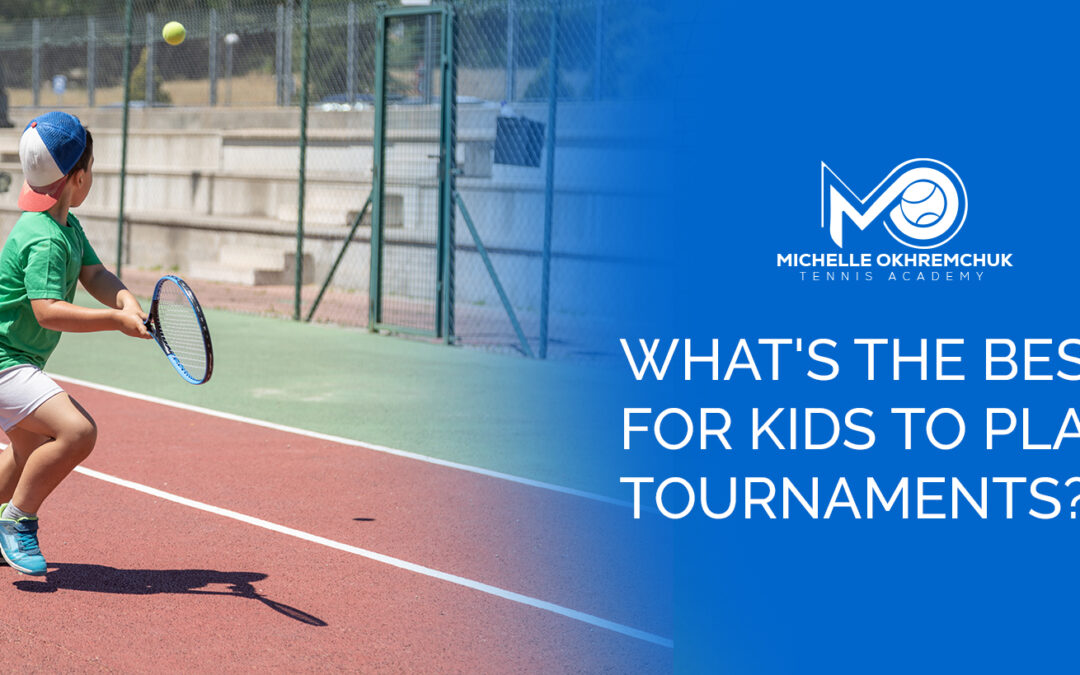As parents, coaches, and mentors, you may wonder what time is best to introduce your young protégés to the world of tournaments.
While age is a factor, it’s not the sole determinant that shapes a player’s readiness.
It is important to note that participation in practice matches, club events, and local competitions nurtures a player’s familiarity with the rules, etiquette, and dynamics of the game outside the practice court. These experiences shape their confidence and serve as stepping stones towards tournament participation.
We will offer insights into the key components that contribute to a young player’s readiness for competitive play. From evaluating their ability to serve consistently, can count and understand the art of positioning, we can then hel them make the transition to playing in tournaments.
Mastery of the Basics
Before young players venture into tournaments, they should have a solid foundation of the basics. It’s not so much about their age but about their mastery of essential skills like serving, scoring, positioning, and a grasp of the fundamental rules.
These seemingly small details play a significant role in building their confidence and understanding of the game’s mechanics.
A strong grasp of these fundamental elements demonstrates a level of competence that translates into consistency and adaptability on the court.
Tournaments are arenas of competition, where players encounter opponents of varying skill levels and playing styles.
By mastering the basics, young players establish a strong platform for growth. They develop the ability to make sound decisions during matches, adjust their strategies on the fly, and respond effectively to their opponents’ tactics. This proficiency breeds confidence and allows them to focus on their performance rather than wrestling with the mechanics of their shots.
Also, the mastery of basics instills a sense of comfort and control on the court. A player who can consistently execute proper techniques experiences fewer fluctuations in performance, resulting in a more stable performance on the courts.
This stability becomes especially crucial in high-stakes tournament environments, where external pressures can reveal weaknesses in a player’s skill set.
Kids should feel comfortable and confident in their understanding of tennis’s elementary components before they step into a tournament setting.
Once they can execute serves, count points, and position themselves correctly, they’re equipped to face opponents in a competitive environment.
Embracing Confidence
While factors such as age and skill level are important, a young player’s level of confidence can significantly influence their readiness for competitive play.
The transition from training matches to actual tournaments is more about psychological readiness than a specific age bracket. When kids feel confident in their skills, strategies, and abilities, they’re ready to embrace the tournament experience.
Confidence is more than just a state of mind; it’s a psychological foundation that supports a player’s overall performance. In the context of tournament readiness, confidence serves as a measure for a player’s self-assuredness in their abilities, their belief in their skills, and their ability to handle the pressures of competition.
A young player who feels confident in their abilities is more likely to have honed their skills to a point where they can execute shots consistently and effectively. This proficiency contributes to a higher level of competitiveness and enables them to hold their ground against opponents with varying degrees of experience.
When they believe in their abilities, they’ll approach every match with a positive attitude, regardless of the outcome. The foundation of this confidence is laid during practice matches and training sessions.
Kids who consistently display a genuine belief in their skills, approaches challenges with a positive attitude, and demonstrates resilience in the face of setbacks, are likely equipped to embrace the competitive environment of tournaments.
The Role of Mentorship
When it comes to determining the best time for kids to play tournaments, the role of mentors cannot be overlooked.
Mentorship serves as a guiding compass that aids both young players and their support systems in making informed choices about tournament readiness.
Coaches, parents, and experienced players play a pivotal role in gauging a child’s readiness. Their observations, insights, and guidance provide valuable input in the decision-making process.
Coaches, experienced players, and seasoned mentors possess a wealth of insights gained from their own experiences in competitive settings. They can provide a comprehensive assessment of a young player’s capabilities and help to identify strengths and areas that may need further development.
These mentors can evaluate a player’s skill set objectively, considering factors such as technique, strategy, consistency, and mental fortitude.
Their expertise allows them to gauge whether a player possesses the necessary tools to navigate the challenges presented by tournament environments.
This guidance is invaluable in ensuring that young players enter tournaments with a solid foundation, setting them up for success rather than undue pressure.
Conclusion
The decision to embark on the journey of tournaments involves an evaluation that extends beyond age and skill. It’s a decision that is profoundly influenced by the interplay of several factors, including mastery of basics, confidence, and the invaluable guidance of mentors.
As parents, coaches, and mentors, the responsibility of determining the best time for kids to participate in tournaments requires a balanced and comprehensive approach.
Don’t rush into tournaments solely based on age milestones. Instead, focus on building a strong foundation of skills, embrace confidence through consistent practice, and seek guidance from experienced mentors.

